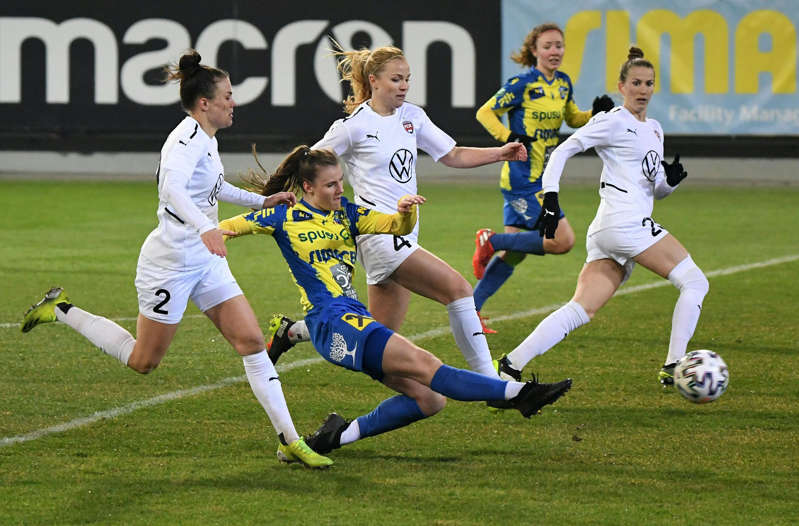St. Pölten will start qualifying for the group stage on Wednesday. Despite the upgrade, the differences are still enormous.

For Austria's women's soccer champions St. Pölten, the season begins with qualification for the Champions League. The bonuses show how far women's football is from the billion-dollar business of men's football. There is no € 15.64 million entry fee for the 32 clubs in the group stage (see history on page 13). Each of the 16 women's clubs that reach the group stage, which is taking place for the first time, will receive 400,000 euros. This is a quantum leap because it is five times as much as the 16 round of 16 players got last season. UEFA is distributing a total of 24 million euros. 18.5 million euros go to the clubs, a further 5.5 million euros as a solidarity payment to clubs from the leagues of the Champions League starters, which must flow into the development of women's football.
Champions League in Turin
The Lower Austrians play in a mini-tournament on the training grounds of Juventus Turin. “We want to win that,” says President Wilfried Schmaus. There are 65,000 euros from UEFA for the mini-tournament. If Besiktas Istanbul (Wednesday, 9 p.m., live ORF Sport +) is beaten, the winner of the game Juventus Turin against Kamnica Sasa (North Macedonia) will be opponents in the fight for a place in the play-off before the group stage on Saturday. Last year the Lower Austrians reached the quarter-finals.
St. Pölten has always been number 1 in the championship since 2015. Liese Brancao is the new trainer. In terms of job rotation on the coaching chair, the women's league has moved closer to the men's league. Robert Haas is working in women's football for the first time at Austria. His predecessor Mario Graf moved to Altenmarkt. Coach Milivoj Vujanovic has switched from Altenmarkt to Südburgenland. But after only a month they part ways again. Now there is a young coaching duo with Benjamin Posch and Maximilian Senft (recently 32) who looks after the Pinkafeld men's team in the Burgenland regional league and was assistant coach at Barnsley in England, WAC and Austria, among others.
The boom did not materialize
Four years have passed since Austria's women's football team delighted fans at the European Championship in the Netherlands – with the way it got into the semifinals. Austria's women are back at the EM, which will not be held in England for a year due to Corona. The big boom did not materialize in the domestic league. The steps towards professionalization are followed by a long march through the plain. A lot has already been achieved with a league sponsor and live broadcasts, but it still takes time to really gain breadth.
Enrichment through Vienna
In the top division, which starts on August 28, the ambitious Vienna is certainly an asset. There the – soon to be former – record team player Nina Burger concentrates only on the sporting direction.
Wiener Austria competes under its name for the first time, the syndicate with Landhaus has ended. And the Bundesliga club Vorderland and the 2nd Bundesliga club Rankweil have been working together with the men's Bundesliga club Altach since winter. With the 22-year-old team player Viktoria Pinther, a top player was brought from Leverkusen to SPG Altach / Vorderland. Dornbirn has been the third club from Vorarlberg in the Bundesliga since this season.
The substructure in league 2
Dornbirn won at the start of the 2nd Bundesliga at the weekend. Landhaus, the 12-time champion, also play there after the end of the syndicate with Austria and the 8-time master Kleinmünchen, who has entered into a syndicate with the men's club BW Linz.
In Upper Austria, however, the newly founded women's team of LASK is considered the most ambitious project, which, however, has to enter the regional league and can only be promoted to the 2nd Bundesliga in a year at the earliest. The same applies to a traditional Styrian club, the GAK also has a women's team that enters the state league.

